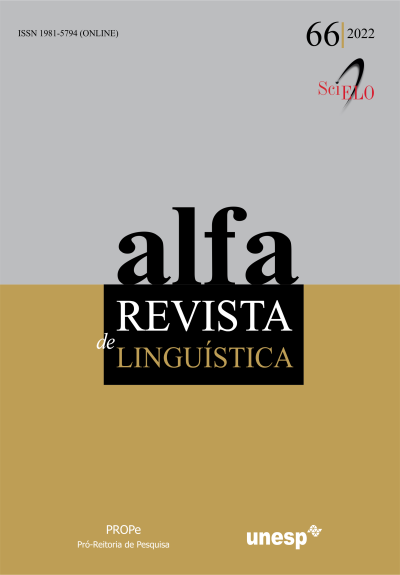Semiodiscoursive translation in the film Paranoid Park
non-original soundtrack as a strategy for meaning production
DOI:
https://doi.org/10.1590/1981-5794-e15191Keywords:
Film soundtrack, discourse semiotics, tensive semiotics, semiodiscursive translation, Paranoid ParkAbstract
The article examines the use of the non-original musical soundtrack in the film Paranoid Park, which is an adaptation of a homonymous novel, analyzing music as a discursive tool and, in the case of non-originality, a bricolated element related to the film through genre, melody and lyrics. Based on semiodiscourse theory, which combines narrativity, discourse and tensivity, the musical texts will be discussed from the point of view of two theorists: Pietroforte and Zilberberg. From the former, we will discuss the typology of musical discourse regimes, which understands the musical text as more or less related to the verbal language and natural sounds. From the latter, we will approach the discursive notion of the rhetoric of the event, which will be important to understand the discursive strategy of the novel and the film, and the construction of the character’s inner space. Departing from three genres played in the movie, we will observe how non-original songs and music are used as rhetorical devices that are symbolic and part of shared beliefs and knowledges of social groups; and motivated by the narrative in which they are inserted, sharing their semantic elements with the image, and supporting semi-symbolic operations.
Downloads
Downloads
Published
How to Cite
Issue
Section
License
Copyright (c) 2022 ALFA: Revista de Linguística

This work is licensed under a Creative Commons Attribution 4.0 International License.
Manuscripts accepted for publication and published are property of Alfa: Revista de Linguística. It is forbidden the full or partial submission of the manuscript to any other journal. Authors are solely responsible for the article's content. Translation into another language without written permission from the Editor advised by the Editorial Board is prohibited.

